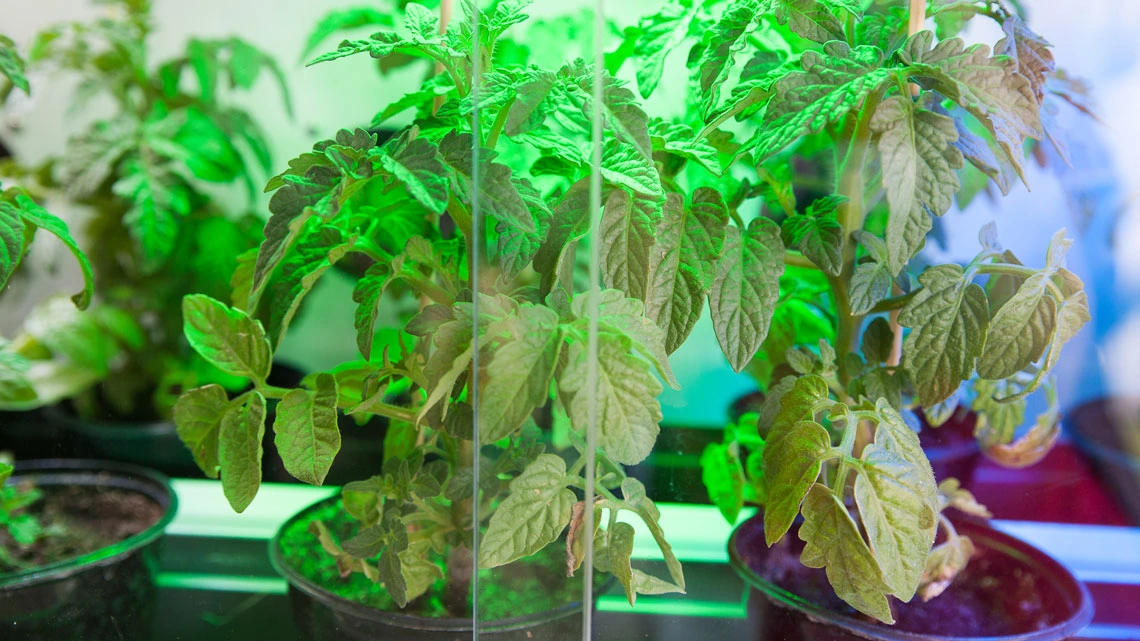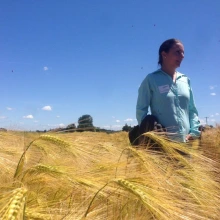Tucson Plant Breeding Institute

The Tucson Plant Breeding Institute (TPBI) offers cutting-edge training in modern plant breeding tools, including genomics, bioinformatics, high throughput phenotyping, and advanced statistical methods for selection, gene mapping, and GxE interactions.
With specialized modules, TPBI allows breeders to tailor their learning to specific needs, whether they are commercial breeders or academics focused on plant science improvement.
The Institute’s mission is to transfer the latest technologies in plant breeding to a wide audience, helping to advance the field through state-of-the-art instruction in statistics, molecular breeding, and computational techniques.
Upcoming Events
The next institute dates are January 5 - 9, 2026 at the Thomas W. Keating Bioresearch Building (1657 E. Helen St. Tucson, AZ) on the University of Arizona campus.
Instructors
Learning Modules
Each module consists of two and a half 8:30 a.m. - 5:00 p.m., with a 12:00 p.m. - 1:30 p.m. lunch break.
Genetics and Analysis of Quantitative Traits
Michael Lynch and Bruce Walsh (1998)
Breeding for Quantitative Traits
Rex Bernardo (2010)
Targeted at geneticists and molecular biologists interested in classic plant breeding approaches essential for molecular breeding, this program provides an introduction to the fundamental principles of quantitative genetics, offering key insights into the machinery useful for plant breeders.
Assumed Background: Exposure to statistics (Regressions, ANOVA, Covariances)
Targeted at geneticists and molecular biologists interested in classic plant breeding approaches critical for molecular breeding, this program offers an introduction to advanced methods for gene detection, mapping, and selection, with a focus on marker-based techniques.
Assumed Background: Introduction to Plant Quantitative Genetics module or similar background.
Planning Your Trip
Hotel and Transportation Information
There are many hotels within 10 miles of the University of Arizona. Below are several within walking distance and/or provides transportation to/from the hotel. Call or visit the websites for current rates.
Aloft Tucson University: 0.4 miles from campus, contact BIO5 staff at events@bio5.org for a discount.
Tucson Marriott University Park Hotel: 1 mile from campus with access to the free Cat Tran bus service, which has stops every 10-15 minutes, including two directly outside the BIO5 Institute on Cherry Avenue.
Arizona Inn: Historic hotel 1.1 miles from campus
Getting around the University of Arizona Campus
The University of Arizona offers several great ways to travel across campus and explore the surrounding areas:
- Cat Tran: A free, public transportation system that serves the University of Arizona campus and the nearby areas.
- Sunlink Streetcar: This all-electric, free streetcar system connects five entertainment districts in Tucson. It’s part of the larger Sun Tran transit network.
- SunTran Bus: Tucson's public bus system offers various routes around the city.
- Explore more of the University of Arizona Campus.


